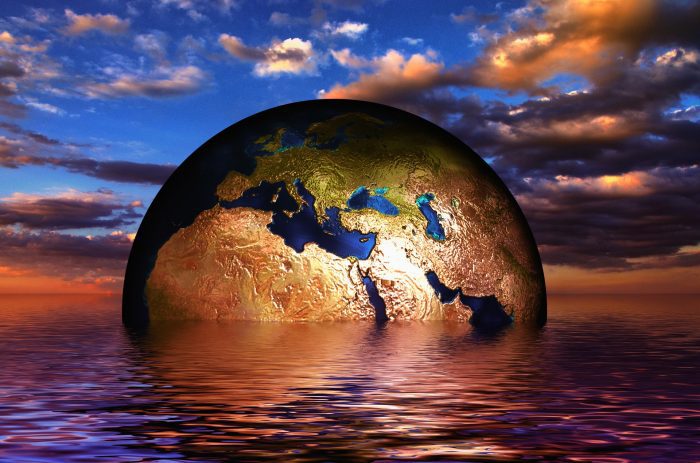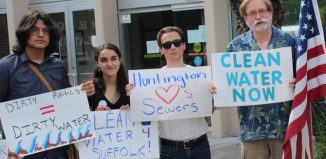D. None of the Above: What if climate change deniers are wrong?
By Daniel Dunaief

We don’t usually go to bed thinking, “what if I’m wrong?” We don’t get up asking ourselves the same question.
We develop our beliefs, stick with them and, as time goes on, we defend them or push for change based on something we think, or are fairly certain, we know.
But it’s worth considering the possibility that we might be wrong, particularly in connection with something as important as the only habitable planet we know.
If you don’t believe climate change is a threat and you think rules restricting environmental pollution are unnecessary and a federal government overreach, have you considered the consequences of being wrong?
I won’t trot out all the climate science experts who have what they consider incontrovertible proof that the climate is warming based on years of data.
You’d probably come back with the argument that the data can be interpreted in other ways or that science itself rarely has complete certainty.
You might even suggest that a warmer climate would mean we wouldn’t need to use as much heat during the winter months and that some crops might grow better during a longer, hotter growing season.
While I don’t ascribe to those thoughts —which a headline grabbing Republican recently espoused — because of the danger to so many staple crops from a warmer season that could include droughts and storms that cripple cities and destroy crops, I want those who don’t believe climate change is real to consider what might happen if they are wrong.
At the time of this writing, the Supreme Court hadn’t ruled on West Virginia vs. Environmental Protection Agency. If the conservative majority, who have been reshaping the political and legal landscape at a rapid pace, rules as expected, the EPA will have less authority to regulate power plant pollution.
That would mean power plants won’t have to comply with federal rules that limit the gases they emit into the environment and the pollutants they send into the air.
These companies may be able to make more money by continuing to operate as they had in the past. Yay for them? Right? Well, not so fast.
What’s the risk if they are wrong? We all make decisions when weighing risks, whether it’s the types of stocks we invest in, the places we go that might be dangerous at night, or the undercooked foods we eat.
So, if they’re wrong, the world continues to heat up, storms such as hurricanes move more slowly, dumping more rain on any one area, crops get destroyed, glaciers continue to melt causing sea levels to rise, and biodiversity declines, wiping out species that might have otherwise led to cures for disease or provide future food sources.
Some areas also become uninhabitable.
Our children, grandchildren and future generations can’t come back to tell us who was right. What we do or don’t do, however, will undoubtedly affect them.
Using the same logic climate change deniers use to suggest that nothing is certain, it seems critical to hedge their bets, protecting us from a future they believe is possible but unlikely.
Even if the Supreme Court acts (or acted, depending on the timing) as expected, we don’t have to be fatalistic or cynical about the next steps in the battle against our own gaseous waste.
Utilities and other companies that produce these gases have to take responsibility for their actions, regardless of what the Supreme Court says or does. Even reluctant legislators have to consider what might happen if they are wrong. Yes, leaders have numerous other problems.
We can’t ignore the Earth. If some people consider the consequences of freeing up companies to send carbon dioxide into the only air we have, they might be making a one-way mistake. They must consider what will happen if they are wrong.







